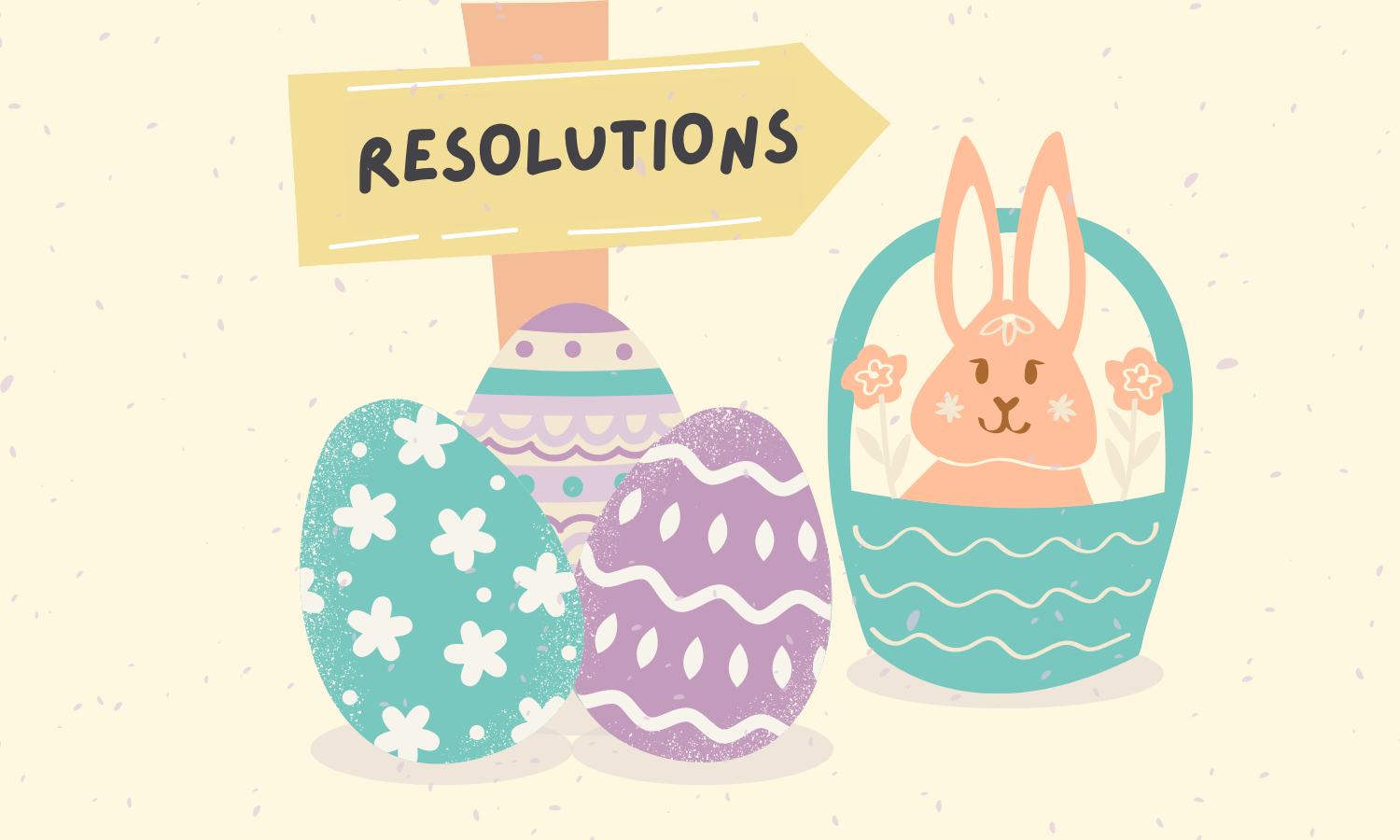Forget New Year's: How Easter resolutions can actually work
So, you kicked off the new year with a bang, full of motivation and determination to conquer those resolutions. Gym memberships were signed, diets were started, and plans for personal growth were laid out. But fast forward a few months, and that initial burst of enthusiasm seems to have fizzled out faster than a firework on New Year's Eve. Sound familiar? Turns out, those New Year's resolutions might not be the golden ticket to success after all.
According to performance and coaching psychologist Dylan Arnot, Easter resolutions could be the game-changer you've been looking for. So, if you're feeling a bit disheartened by your lack of progress, don't worry – there's still hope yet. Let's dive into How Easter resolutions might just beat New Year's blues.
Why New Year's resolutions often go belly-up
Ever noticed how your New Year's resolutions seem to hit the skids faster than you can say "Happy New Year"? Turns out, you're not alone. According to studies, most of us are waving the white flag on our goals by the time Valentine's Day rolls around. And if you're the proud owner of a fitness app, chances are you've watched your resolution dreams crumble within a mere 19 days, as research collected from the data of 800 million app users.
Why do our grand plans for self-improvement crash and burn faster than a soufflé in a power outage? Well, there are a few things to consider. Maybe our goals are about as realistic as winning the lottery, or perhaps we're about as specific with our plans as a GPS without satellite signal. The list of potential pitfalls is long.
But maybe it's not the goals themselves that are the problem but rather when we decide to tackle them.
How long does it take to form a new habit?
You might have heard that it only takes 21 days to form a new habit. But guess what? It's just that—a myth.
Back in the 1960s, this idea cropped up from a self-help book, not exactly based on solid science. So, how long does it really take to nail down a new habit?
According to Wendy Wood, a psychology and business professor at the University of Southern California, and the brains behind Good Habits, Bad Habits: The Science of Making Positive Changes That Stick, it takes about two to three months for a habit to really stick.
And here's the kicker: a hallmark study on habit creation found that habits developed in a range of 18 to 254 days. Participants reported taking an average of about 66 days to reliably incorporate one of three new daily activities—eating a piece of fruit with lunch, drinking a bottle of water with lunch, or running for 15 minutes before dinner. So, while it might not happen overnight, keep at it—good habits are worth the effort!
But let's be real, setting a new habit isn't all rainbows and sunshine. Sure, the benefits are awesome and can totally change your life, but getting there involves some discomfort—a consistent willingness to push through the awkwardness until it feels like second nature.
How to set resolutions that are built to last
1. Get specific.
Turn those vague resolutions into clear, measurable goals. Want to get fit? Try "Run 5k without stopping" instead of "Get in shape."
2. Ride your habits.
Embrace the things that worked for you in 2023 with your "Keep Doing" list. Reflect on what brought you joy, fulfilment, and success, and commit to continuing those habits into the new year. Instead of fixating on what needs to change, celebrate what shouldn't.
Here's a tip from Shelley...
From here, list the five to 10 things you want to keep doing this year. These are your resolutions.
3. Engineer your environment.
Set yourself up for success by tweaking your surroundings. Want to eat healthier? Keep fruit on the counter instead of cookies. Or you may want to dedicate a specific workspace for productivity, creating an environment conducive to your objectives increases your chances of success. It's all about making the right choice the easy choice.
4. Measure your progress.
Keep track of your journey by monitoring your progress regularly. Whether it's through a habit tracker app, a journal, or regular check-ins with a friend, having tangible evidence of your growth fuels motivation and reinforces your commitment to your goals.
5. Don't sweat the bad days
Focus on the long game and keep moving forward. Accept that setbacks are a natural part of the process and don't let them derail your progress. Instead of dwelling on occasional slip-ups, focus on your overall progress and celebrate your wins. Remember, it's not about being perfect—it's about staying committed and consistent over time.
So why don't we skip the grand resolutions and focus on what truly lights us up? Who knows? You might just find that "New Year, Same Me" is the best version yet.









